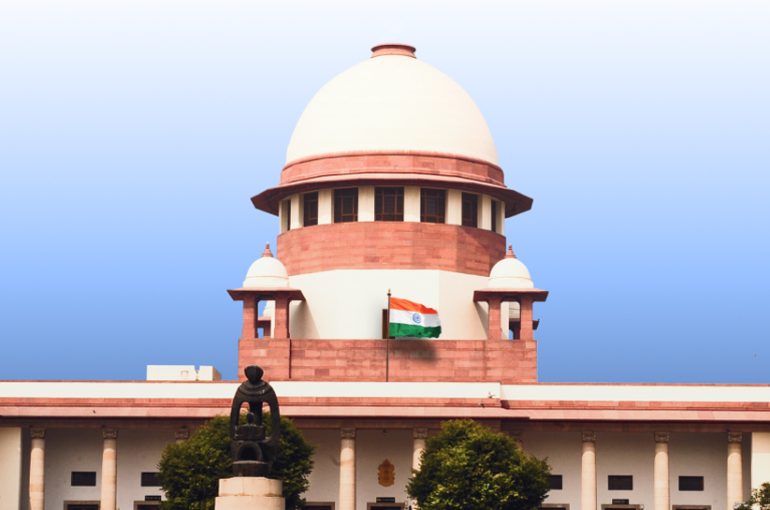WHEN CIVIL WRONGS WEAR CRIMINAL ROBES: THE SUPREME COURT’S REAFFIRMS COMPROMISE IN CHEQUE DISHONOUR CASES

INTRODUCTION
In Gian Chand Garg v. Harpal Singh & Anr., [SLP (Crl.) No. 8050 of 2025], decided on 11 August 2025 by Justices Aravind Kumar and Sandeep Mehta, the Hon’ble Supreme Court once again examined the relationship between criminal liability under the Negotiable Instruments Act, 1881 (“NI Act”) and the legal weight accorded to compromise between disputing parties. Setting aside concurrent convictions under Section 138 of the NI Act, the Court emphasized that once parties voluntarily enter into a settlement, the compounding of the offence must be respected.
BRIEF FACTS
The case originated when the Complainant, Harpal Singh, alleged that the Appellant, Gian Chand Garg, had borrowed ₹5,00,000 and issued a cheque towards repayment. The cheque was dishonoured with the endorsement “funds insufficient.” Following issuance of a statutory notice, a complaint under Section 138 NI Act was filed before the Judicial Magistrate First Class.
After trial, the Appellant was convicted and sentenced to six months’ simple imprisonment with a fine of ₹1,000. The conviction was successively affirmed by the Additional Sessions Judge (in appeal) and by the Punjab & Haryana High Court (in revision).
Subsequently, on 6 April 2025, the parties executed a compromise deed, whereby the Complainant accepted payment through demand drafts and cheques in full and final settlement. Despite this, the High Court dismissed the Appellant’s application seeking acquittal on grounds of non-maintainability. The matter thus reached the Supreme Court.
ISSUES OF LAW
- Whether offences under Section 138 of the NI Act retain a predominantly civil character despite criminal consequences.
- Whether a voluntary compromise between parties can override concurrent convictions by lower courts.
- Whether compounding under Section 147 of the NI Act can be allowed at any stage of the proceedings.
ANALYSIS OF THE JUDGMENT
The Court examined how jurisprudence on Section 138 of the NI Act has evolved over time:
In Meters and Instruments Pvt. Ltd. v. Kanchan Mehta (2018) 1 SCC 560, the Court had recognized the civil nature of cheque dishonour offences and upheld their compoundability under Section 147 NI Act.
In P. Mohanraj v. Shah Brothers Ispat Pvt. Ltd. (2021) 6 SCC 258, the offence was metaphorically described as a “civil sheep in criminal wolf’s clothing” highlighting its private and compensatory character.
In M/s. Gimpex Pvt. Ltd. v. Manoj Goel (2021) SCC OnLine SC 925, the Court acknowledged that settlements are often entered into for pragmatic reasons like faster recovery, risk avoidance, and certainty.
Applying these precedents, the Bench held that although dishonour of a cheque attracts criminal consequences, the legislative intent—through Section 147—was to enable compounding “at any stage of the proceedings.” The voluntary compromise deed, supported by an affidavit, showed that the Complainant had accepted settlement without coercion. Consequently, the Court ruled that the continued conviction of the Appellant was legally unsustainable.
Accordingly, the Supreme Court quashed the conviction and sentence, allowing the Appeal.
CONCLUSION
This Judgment reinforces the principle that cheque dishonour proceedings, while clothed in criminal procedure, are essentially civil wrongs designed to protect the sanctity of financial transactions. The Court’s decision underscores the value of compromise, efficiency, and finality in cheque dishonour cases, and reiterates that once parties reach a voluntary settlement, the coercive machinery of criminal law should not be allowed to run its course.
By elevating compromise over prolonged litigation, the Supreme Court has once again balanced the punitive with the pragmatic—ensuring that justice aligns with commercial realities.
SARTHAK KALRA
Senior Legal Associate
The Indian Lawyer & Allied Services
Please log onto our YouTube channel, The Indian Lawyer Legal Tips, to learn about various aspects of the law. Our latest Video, titled “Legal Aspects of Exports in India | Export Laws Explained | Advocate Sushila Ram Varma|” can be viewed at the link below:
https://www.youtube.com/watch?v=2PWPKz1yr-E&t=71s





































Leave a Reply